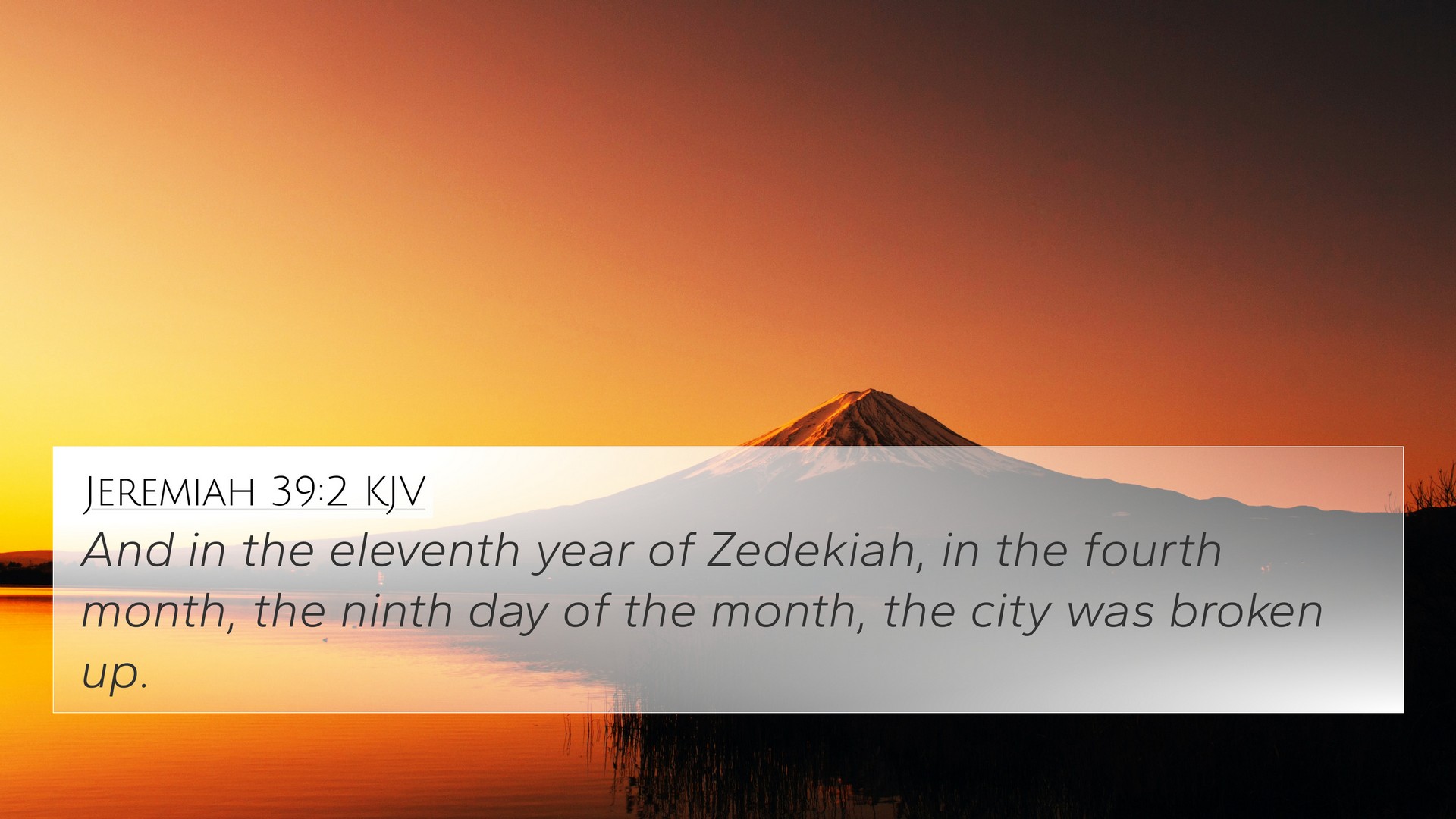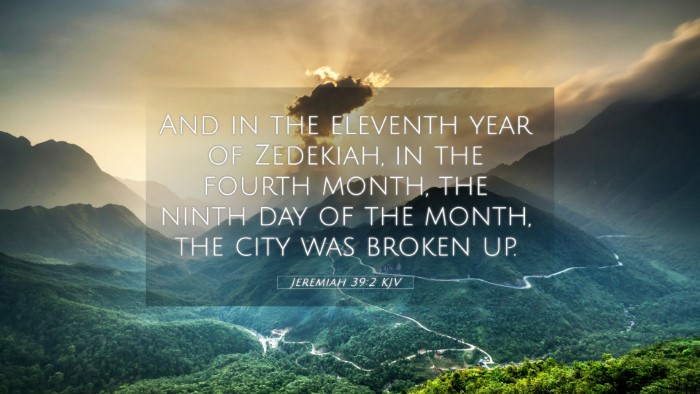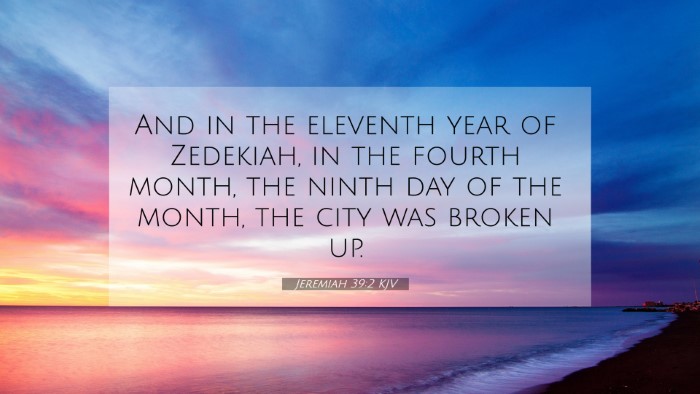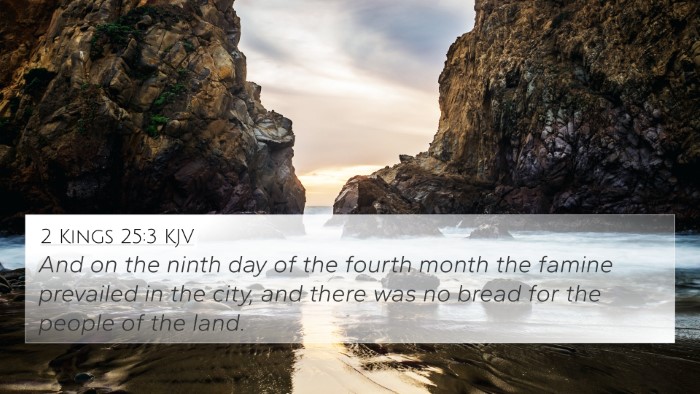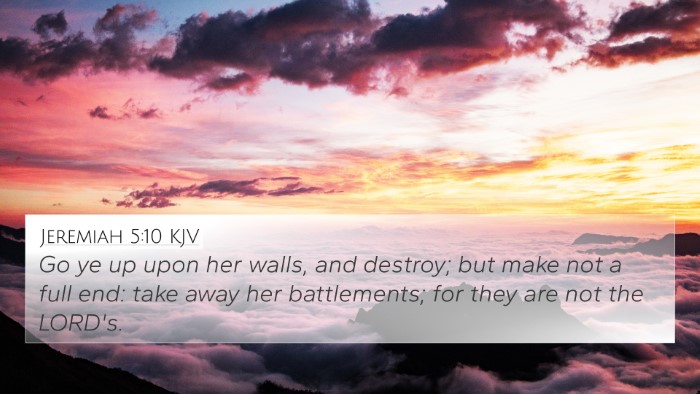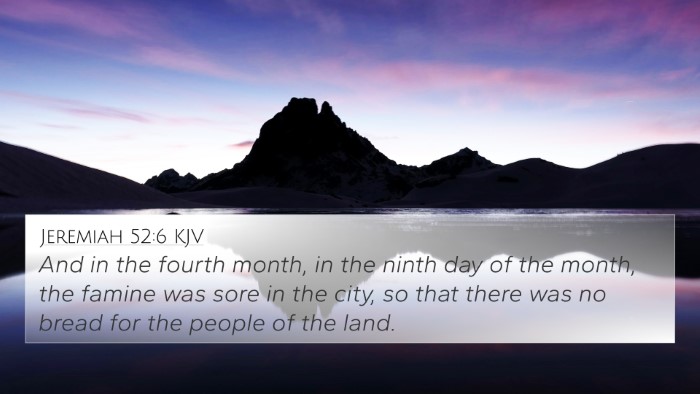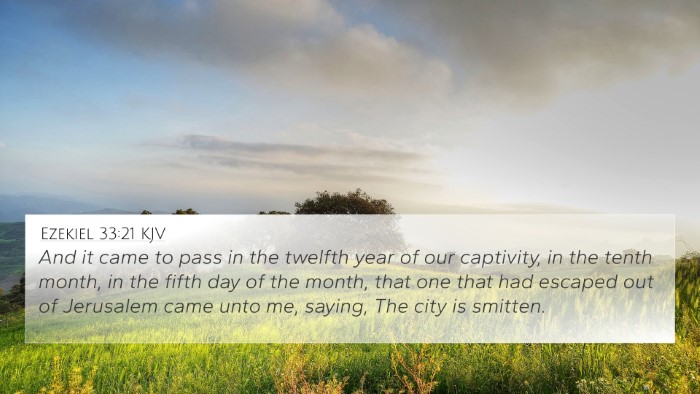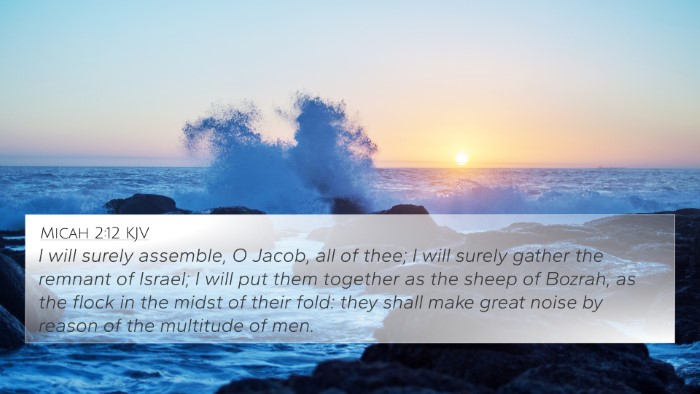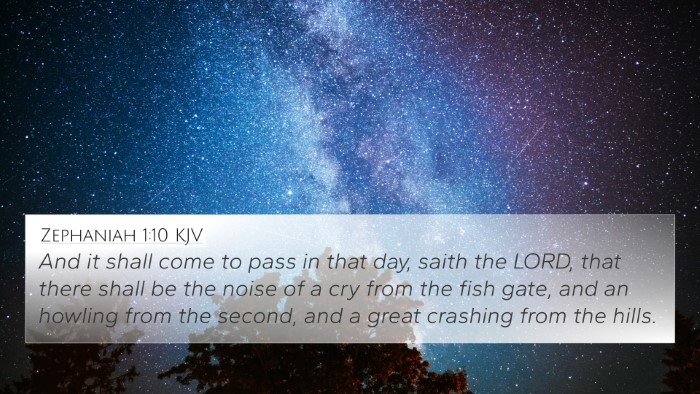Understanding Jeremiah 39:2
Bible Verse: Jeremiah 39:2 - "In the eleventh year of Zedekiah, king of Judah, in the fourth month, the ninth day of the month, the city was broken up."
Summary of Meaning
This verse marks a significant historical moment in the biblical narrative, concluding the siege of Jerusalem by the Babylonian Empire. The siege represents not only a physical breach of the city but also a spiritual and national collapse for Israel. The timing indicated by Jeremiah emphasizes God’s sovereignty over history and the fulfillment of prophetic warnings given through Jeremiah about the doom of Jerusalem.
Commentary Insights
-
Matthew Henry:
Henry emphasizes that this event was a direct consequence of the people’s sin against God. The fall of Jerusalem serves as a reminder of divine justice and the seriousness with which God holds His covenant people accountable for their actions.
-
Albert Barnes:
Barnes highlights the precision of the time marker in this verse, noting that it specifies the exact moment of the city's fall. This specificity underscores the momentous nature of the event, affirming its historical significance and prophetic fulfillment.
-
Adam Clarke:
Clarke discusses the implications of the city's destruction, particularly reflecting on how the people of Judah failed to heed the messages from God through His prophets. This failure ultimately leads to their suffering and the loss of their homeland.
Connections Between Bible Verses
Jeremiah 39:2 can be cross-referenced with several important biblical texts:
- Jeremiah 1:15: God foretells the coming of nations against Jerusalem.
- 2 Kings 25:1-2: Chronicles the siege and destruction of Jerusalem.
- Lamentations 2:1: Expresses sorrow over the fall of the city.
- Ezekiel 5:12: Describes the fate of those in Jerusalem when it falls.
- Daniel 1:1: Mentions the first siege of Jerusalem that sets the stage for future events.
- Matthew 24:2: Jesus prophesies the destruction of the temple, linking back to the fall of Jerusalem.
- Revelation 18:2: Symbolically refers to the fall of great cities, echoing the themes seen in Jeremiah.
Thematic Bible Verse Connections
This verse plays into broader biblical themes, including:
- Judgment and Justice: The fall signifies God's judgment against unfaithfulness.
- Hope and Restoration: While it details judgment, there is also subsequent hope for restoration in future prophetic writings.
- Doubt and Faith: The narrative warns against doubting God’s word as seen in prior warnings from Jeremiah.
Tools for Bible Cross-Referencing
To explore connections and deeper meanings within the Bible, several tools can be useful:
- Bible Concordance: Helps locate verses and their occurrences across the scriptures.
- Cross-Reference Bible Study: Provides guidance on linking similar themes or stories across books.
- Bible Reference Resources: Include encyclopedias and dictionaries that elaborate on connections between verses.
Inter-Biblical Dialogue
The scriptures engage in a dialogue that showcases the continuity of themes across both the Old and New Testaments. Understanding the connections between Jeremiah's prophecies and New Testament fulfilments impacts how one perceives the overarching narrative of redemption.
Conclusion
Jeremiah 39:2 serves as a critical junction not only in the history of Israel but also in the grand tapestry of biblical revelation. By cross-referencing related verses and engaging in a thematic analysis, we can gain deeper insights into God’s character, His judgments, and His ultimate plans for restoration.
